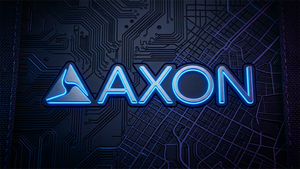- Acadia plans to resubmit its sNDA in the first quarter of 2022
- Conference call and webcast to be held today at 4:30 p.m. Eastern Time
Acadia Pharmaceuticals Inc. (Nasdaq: ACAD) announced today that it plans to resubmit its supplemental New Drug Application (sNDA) for pimavanserin for the treatment of hallucinations and delusions associated with dementia focused on Alzheimer’s disease psychosis (ADP). Resubmission of the sNDA to the U.S. Food and Drug Administration (FDA) is planned for the first quarter of 2022.
“Following our recent meetings with the FDA, we plan to resubmit our sNDA for pimavanserin, narrowing the proposed indication from dementia-related psychosis to Alzheimer’s disease psychosis,” said Steve Davis, Chief Executive Officer. “Our resubmission will include new analyses of existing clinical study data supporting the treatment of hallucinations and delusions associated with Alzheimer’s disease. We are aware there are challenges to overcoming our complete response letter, but are pleased with the high level of engagement from the FDA over the last three meetings and their willingness to review our resubmission, allowing us to make our case that pimavanserin should be the first drug approved to treat Alzheimer’s disease psychosis.”
The resubmission is intended to demonstrate pimavanserin’s clinically meaningful benefit in ADP patients, without worsening of cognition or motor function in this elderly population. The resubmission will include data from two positive, placebo-controlled studies that prospectively met their primary endpoints: the pivotal Phase 3 HARMONY study1 and the -019 study2. Additional analyses from HARMONY and -019 will also be provided that validate the primary conclusions from each study and address the concerns raised in the FDA’s complete response letter.
Conference Call and Webcast Information
Acadia will discuss this regulatory update regarding the resubmission of the sNDA for pimavanserin for the treatment of ADP via conference call and webcast today at 4:30 p.m. Eastern Time. The conference call can be accessed by dialing 855-638-4820 for participants in the U.S. or Canada and 443-877-4067 for international callers (reference passcode 3072268). A telephone replay of the conference call may be accessed through January 4, 2022 by dialing 855-859-2056 for callers in the U.S. or Canada and 404-537-3406 for international callers (reference passcode 3072268). The conference call will also be webcast live on Acadia’s website, www.acadia-pharm.com, in the investors section and archived until January 17, 2022.
About Alzheimer’s Disease Psychosis
According to the Alzheimer’s Association, over six million people in the United States are living with Alzheimer’s disease3. Studies suggest that 25 to 50 percent of patients diagnosed with Alzheimer’s disease have psychosis, commonly consisting of hallucinations and delusions4. These symptoms may be frequent and severe and may recur over time. A hallucination is defined as a perception-like experience that occurs without an external stimulus and is sensory (seen, heard, felt, tasted, sensed) in nature. A delusion is defined as a false, fixed belief that is resolutely held despite evidence to the contrary. Serious consequences have been associated with psychosis in patients with dementia, such as repeated hospital admissions, increased likelihood of nursing home placement, faster progression of dementia, and increased risk of morbidity and mortality5. There is no FDA approved drug for the treatment of Alzheimer’s disease psychosis.
About Pimavanserin
Pimavanserin is a selective serotonin inverse agonist and antagonist preferentially targeting 5-HT2A receptors. These receptors are thought to play an important role in neuropsychiatric disorders. In vitro, pimavanserin demonstrated no appreciable binding affinity for dopamine (including D2), histamine, muscarinic, or adrenergic receptors. Pimavanserin was approved for the treatment of hallucinations and delusions associated with Parkinson’s disease psychosis by the U.S. Food and Drug Administration in April 2016 under the trade name NUPLAZID®. NUPLAZID is not approved for dementia-related psychosis. In addition, Acadia is developing pimavanserin in other neuropsychiatric conditions.
About Acadia Pharmaceuticals
Acadia is advancing breakthroughs in neuroscience to elevate life. For more than 25 years we have been working at the forefront of healthcare to bring vital solutions to people who need them most. We developed and commercialized the first and only approved therapy for hallucinations and delusions associated with Parkinson’s disease psychosis. Our late-stage development efforts are focused on treating psychosis in patients with dementia, the negative symptoms of schizophrenia and Rett syndrome. Our early-stage development efforts are focused on novel approaches to pain management, cognition and neuropsychiatric symptoms in central nervous system disorders. For more information, visit us at www.acadia-pharm.com and follow us on LinkedIn and Twitter.
Important Safety Information and Indication for NUPLAZID® (pimavanserin)
Indication
NUPLAZID is indicated for the treatment of hallucinations and delusions associated with Parkinson’s disease psychosis.
Important Safety Information
WARNING: INCREASED MORTALITY IN ELDERLY PATIENTS WITH DEMENTIA-RELATED PSYCHOSIS
- Elderly patients with dementia-related psychosis treated with antipsychotic drugs are at an increased risk of death.
- NUPLAZID is not approved for the treatment of patients with dementia-related psychosis unrelated to the hallucinations and delusions associated with Parkinson’s disease psychosis.
- Contraindication: NUPLAZID is contraindicated in patients with a history of a hypersensitivity reaction to pimavanserin or any of its components. Rash, urticaria, and reactions consistent with angioedema (e.g., tongue swelling, circumoral edema, throat tightness, and dyspnea) have been reported.
-
Warnings and Precautions: QT Interval Prolongation
-
NUPLAZID prolongs the QT interval. The use of NUPLAZID should be avoided in patients with known QT prolongation or in combination with other drugs known to prolong QT interval including Class 1A antiarrhythmics or Class 3 antiarrhythmics, certain antipsychotic medications, and certain antibiotics.
- NUPLAZID should also be avoided in patients with a history of cardiac arrhythmias, as well as other circumstances that may increase the risk of the occurrence of torsade de pointes and/or sudden death, including symptomatic bradycardia, hypokalemia or hypomagnesemia, and presence of congenital prolongation of the QT interval.
-
NUPLAZID prolongs the QT interval. The use of NUPLAZID should be avoided in patients with known QT prolongation or in combination with other drugs known to prolong QT interval including Class 1A antiarrhythmics or Class 3 antiarrhythmics, certain antipsychotic medications, and certain antibiotics.
- Adverse Reactions: The common adverse reactions (≥2% for NUPLAZID and greater than placebo) were peripheral edema (7% vs 2%), nausea (7% vs 4%), confusional state (6% vs 3%), hallucination (5% vs 3%), constipation (4% vs 3%), and gait disturbance (2% vs <1%).
-
Drug Interactions:
-
Coadministration with strong CYP3A4 inhibitors (e.g., ketoconazole) increases NUPLAZID exposure. Reduce NUPLAZID dose to 10 mg taken orally as one tablet once daily.
- Coadministration with strong or moderate CYP3A4 inducers reduces NUPLAZID exposure. Avoid concomitant use of strong or moderate CYP3A4 inducers with NUPLAZID.
-
Coadministration with strong CYP3A4 inhibitors (e.g., ketoconazole) increases NUPLAZID exposure. Reduce NUPLAZID dose to 10 mg taken orally as one tablet once daily.
Dosage and Administration
Recommended dose: 34 mg capsule taken orally once daily, without titration.
NUPLAZID is available as 34 mg capsules and 10 mg tablets.
Please read the full Prescribing Information including Boxed WARNING.
Forward-Looking Statements
Statements in this press release that are not strictly historical in nature are forward-looking statements. These statements include but are not limited to statements regarding the timing of future events. These statements are only predictions based on current information and expectations and involve a number of risks and uncertainties. Actual events or results may differ materially from those projected in any of such statements due to various factors, including the risks and uncertainties inherent in drug development, approval and commercialization. For a discussion of these and other factors, please refer to Acadia’s annual report on Form 10-K for the year ended December 31, 2020 as well as Acadia’s subsequent filings with the Securities and Exchange Commission. You are cautioned not to place undue reliance on these forward-looking statements, which speak only as of the date hereof. This caution is made under the safe harbor provisions of the Private Securities Litigation Reform Act of 1995. All forward-looking statements are qualified in their entirety by this cautionary statement and Acadia undertakes no obligation to revise or update this press release to reflect events or circumstances after the date hereof, except as required by law.
References
1Tariot PN, et al. N Engl J Med. 2021; 385(4):309-319.
2Ballard C, et al. Lancet Neurol. 2018;17(3):213-222. Ballard C, et al. J Prev Alzheimers Dis. 2019;6(1):27-33.
32021 Alzheimer’s Disease Facts and Figures and Acadia market research.
4Plassman BL, et al. Prevalence of Dementia in the United States: The Aging Demographics, and Memory study. Neuroepidemiology. 2007;29(1-2):125-132.
5Connors MH et al. Am J Geriatr Psychiatry 2018;26(3). Peters ME et al. Am J Psychiatry 2015;172(5). Haupt M et al. Int J Geriatr Psychiatry 1996;11(11). Naimark D et al. J Am Geriatr Soc 1996;44(3). Stern Y et al. Neurology 1994;44(12).
View source version on businesswire.com: https://www.businesswire.com/news/home/20211220005750/en/
Contacts
Media Contact:
Acadia Pharmaceuticals Inc.
Deb Kazenelson
818-395-3043
media@acadia-pharm.com
Investor Contact:
Acadia Pharmaceuticals Inc.
Mark Johnson, CFA
(858) 261-2771
ir@acadia-pharm.com






